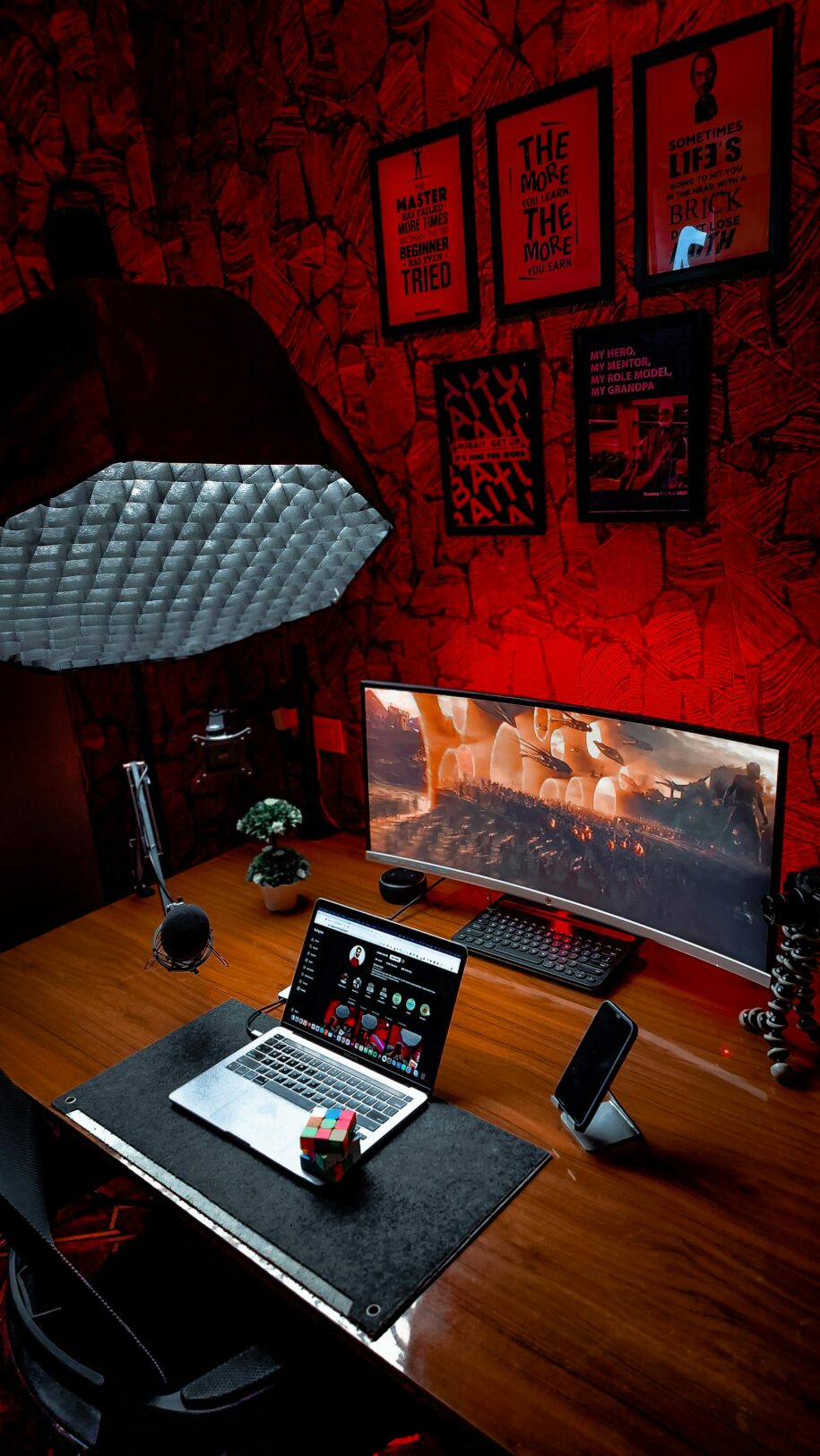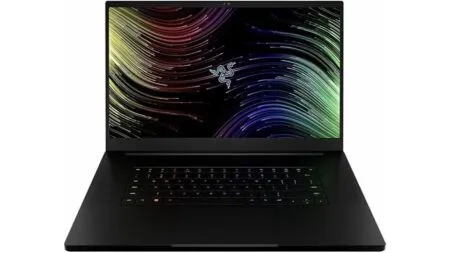Hey everyone! Let’s be real—if you’ve ever browsed for a gaming laptop, you’ve probably been hit with some serious sticker shock. It’s no secret that gaming laptops cost a small fortune compared to regular ones, and you’re probably wondering: why is that the case? Let’s dive into the reasons why these portable gaming beasts carry such a hefty price tag.
Why Are Gaming Laptops So Expensive? Quick Summary:
| Reason | Description |
|---|---|
| High-Performance Hardware | Top-tier CPUs, GPUs, and high-refresh rate displays are pricey. |
| Cooling Systems | Advanced cooling to prevent overheating adds to the cost. |
| Compact Engineering | Squeezing powerful components into a small form factor takes special engineering. |
| Premium Materials | Gaming laptops often use high-quality materials to ensure durability. |
| Custom Features | RGB lighting, mechanical keyboards, and premium audio all add up. |
Now, let’s take a deeper look at each of these points.
1. High-Performance Hardware: The Heart of the Beast
Let’s start with what really makes a gaming laptop tick: the hardware. When you’re looking at a gaming laptop, you’re not just seeing a regular computer. It’s packed with cutting-edge components like high-end CPUs and dedicated graphics cards—often the same ones found in gaming desktops.
Unlike a regular laptop that might use an integrated graphics card just to stream videos or browse the web, gaming laptops come with heavy-duty GPUs from brands like NVIDIA or AMD. These graphics cards are crucial for running games smoothly at high settings, but they also add significantly to the price.
And it’s not just the graphics card. Gaming laptops typically feature powerful processors, tons of RAM, and fast SSDs. All of these parts are premium, and they come with premium price tags. That’s because games, especially the latest ones, require a lot of computing power to run without lag or frame drops—and these components make that happen.
2. Cooling Systems: Keeping Things Chill
Ever notice how much heat your regular laptop generates after an hour or two of use? Now imagine how much heat is produced by a gaming laptop running a game like “Cyberpunk 2077” on high settings for several hours. These laptops are like mini power plants, generating a ton of heat.
To combat this, gaming laptops have advanced cooling systems. Multiple fans, heat pipes, and sometimes even liquid cooling are used to keep temperatures under control. It’s not just about having fans, it’s about having a well-engineered solution that prevents overheating while maintaining performance.
This kind of cooling technology is far more advanced and expensive compared to what’s in a normal laptop. It’s the difference between cooling a sedan versus cooling a race car—it takes more effort, precision, and ultimately, more money.
3. Compact Engineering: Power Meets Portability
A big reason for the high cost is the engineering challenge of making a gaming laptop both powerful and portable. Gaming desktops can be as big and bulky as they need to be, with plenty of room for air circulation and components. But a gaming laptop has to cram all of that power into a slim, portable frame.
Imagine trying to fit a muscle car engine into a small sports car. Not only does it take a lot of engineering know-how, but it also requires specialized components that are smaller yet just as powerful. This is part of why gaming laptops cost so much—manufacturers need to design specialized motherboards, compact cooling solutions, and power supplies that can fit inside a much smaller space.
4. Premium Materials and Build Quality
Another cost factor is the quality of materials used. Gaming laptops are generally built tougher than your average notebook. They use premium materials like aluminum, magnesium alloy, and reinforced plastics to handle the heat and wear that come from heavy gaming.
Plus, these laptops are often designed with gamer aesthetics in mind. You know what I mean—sleek designs, RGB lighting, custom cooling vents, and more. All of these things are not just added for looks; they’re also there to improve durability, make the machine comfortable to use for long hours, and dissipate heat more efficiently. But all those fancy materials and flashy designs cost extra.
5. Custom Features That Make a Difference
Let’s be honest: part of what makes gaming laptops awesome is all the cool features they pack in. RGB lighting for the keyboard, high-refresh-rate screens, mechanical keys, advanced audio systems, and even custom hotkeys—these are features you don’t often find in regular laptops.
These add-ons are not just gimmicks either. They’re geared to enhance the gaming experience. For instance, a 144Hz or 240Hz display makes a big difference in fast-paced games by providing smoother visuals compared to the standard 60Hz screen. Similarly, mechanical keyboards are more responsive and satisfying for gaming compared to the typical laptop keyboard. However, including all these extras adds to the production cost, which gets passed down to the consumer.
6. Gaming Brands and Software Optimization
Another factor that often contributes to the cost of gaming laptops is the brand and software optimization. Companies like Razer, ASUS, Alienware, and MSI have established themselves as premier gaming brands. This brand power allows them to command higher prices because they provide a level of trust, build quality, and specialized gaming features that users have come to expect.
On top of that, gaming laptops often come with custom software that optimizes gaming performance, controls RGB lighting, and manages cooling settings. Developing this software takes time and money, which inevitably affects the final price.
7. Research and Development: Behind-the-Scenes Costs
We can’t forget about research and development (R&D). Gaming laptops require extensive R&D to make sure they’re both powerful and reliable. This includes testing different cooling methods, optimizing hardware configurations, and finding ways to keep the performance high while making sure the laptop doesn’t weigh as much as a brick.
All of that R&D doesn’t come cheap, and companies need to recoup their investment. That’s another reason why gaming laptops are more expensive compared to your average everyday machine.
8. Limited Production Volume
This one might surprise you: gaming laptops are actually produced in smaller quantities compared to regular laptops. The market for them is smaller, which means manufacturers don’t benefit as much from economies of scale.
With fewer units being made, the cost per unit is higher. It’s similar to why custom-made items cost more than mass-produced ones—the fewer you make, the more it costs to make each individual one.
Is It Worth It?
So, after all of that, you might be wondering—is the high cost of a gaming laptop really worth it? Well, it depends on what you want to do. If you’re a gamer on the go, who needs the flexibility of a portable yet powerful machine, then a gaming laptop is totally worth it. You’re paying for portability, convenience, and the ability to game from anywhere.
However, if portability isn’t as important to you, a gaming desktop will usually give you more bang for your buck. Desktops are easier to upgrade, stay cooler, and generally offer better performance for the price.
Final Thoughts
Gaming laptops are expensive for a reason. They pack powerful hardware, advanced cooling, and loads of gamer-centric features into a portable package. And that kind of engineering doesn’t come cheap.
But for many, the convenience and sheer cool factor of a gaming laptop make it all worthwhile. After all, being able to play the latest AAA games on ultra-settings while lounging in your favorite coffee shop is pretty darn awesome.
If you’re considering buying a gaming laptop, make sure you’re investing in the right one for your needs. Whether you’re all about the portability, the flashy features, or just need something that can handle school and gaming, there’s a gaming laptop out there for you—if you’re willing to shell out the cash, of course.
Do you have any favorite gaming laptops in mind? Or do you have some horror stories of gaming laptops that didn’t live up to the hype? Let me know in the comments below—I’d love to hear from you!
Happy gaming, folks!
Read more: Why Is My Gaming Laptop So Slow? A quick Guide to Troubleshooting









